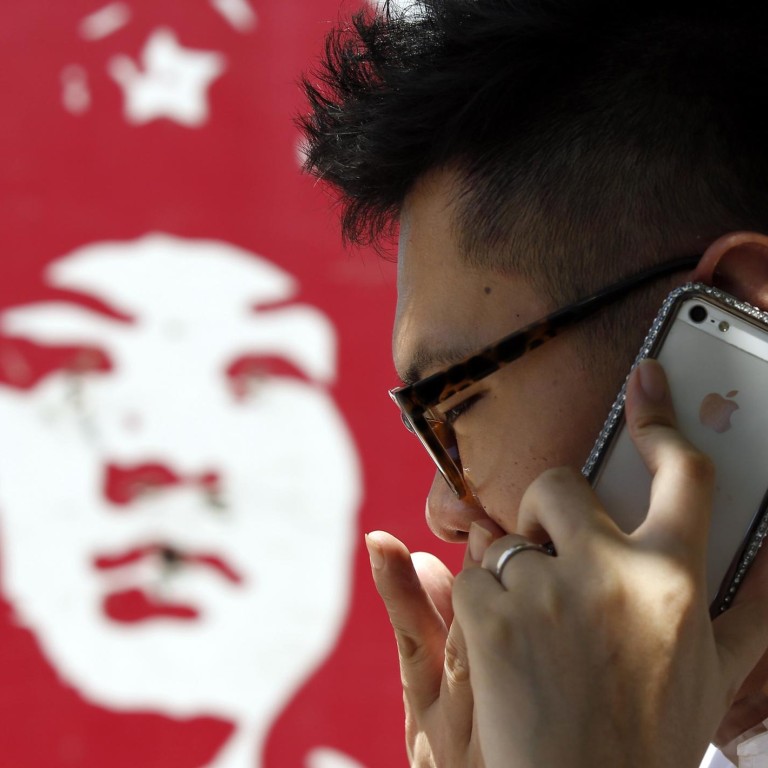
Apple softens blow of security threat allegations with consumer advocacy
Analysts say location tracking data highlighted as risk by CCTV is ubiquitous in smartphones
Security risk allegations against Apple that were reported last week by the mainland's state-owned broadcaster may have helped, rather than harmed, the technology giant's reputation in the world's largest smartphone market.
Analysts said Apple's response to that report provided consumers with fresh insight about the company's privacy policy and how to control "Frequent Locations", the user location-tracking function of its iOS mobile operating system which runs on the iPhone and iPad.
A report by China Central Television on Friday featured an expert who singled out Apple's iOS user location programme as a potential national security threat. Ma Ding, head of the online security institute at China People's Public Security University, suggested that anyone with access to the data could find patterns from the information and could even leak "state secrets".
Forrester Research vice-president Bryan Wang said such technology was already ubiquitous. "In general, the location-tracking feature is almost a standard across all major smartphone vendors and platforms globally," Wang said.
Mainland search market leader Baidu, for example, uses data gathered from smartphones installed with its location-based Baidu Maps mobile application for a "heat map" that tracks where Chinese travellers go during the Lunar New Year holiday.
Sandy Shen, research director for consumer services at Gartner, said: "There are many mobile apps which collect user location data, without clearly stating how that data is being used."
She credited Apple for "doing a better job than many app developers in giving users control over location tracking".
In a statement released on Saturday, Apple said iOS device users "make the choice to enable Location Services, it is not a default setting". Apple said it does not allow any app to receive device location data without first receiving the user's explicit consent.
"Apple has never worked with any government agency from any country to create a backdoor in any of our products or services. We have also never allowed access to our servers," the company said in the statement.
The strong assurance shows how important the mainland is to Apple as both a manufacturing base and consumer market. China - comprising the mainland, Hong Kong, Macau and Taiwan - is Apple's largest market after the United States.
Wang said Apple had as much as 6 per cent share of the mainland's total smartphone market, which placed it out of the top-five brands.
Analysys International estimated that South Korea's Samsung Electronics led mainland smartphone sales in the first quarter, with a 17.8 per cent share. It was followed by Lenovo, Coolpad, Huawei Technologies and Xiaomi.
"That shows iPhone usage is unlikely to pose a threat to national security," Wang said.
Shen, however, said many Apple fans on the mainland "probably don't really care about this [alleged security risk]".
Research firm Canalys forecast that mainlanders would buy nearly 423 million smartphones this year.

